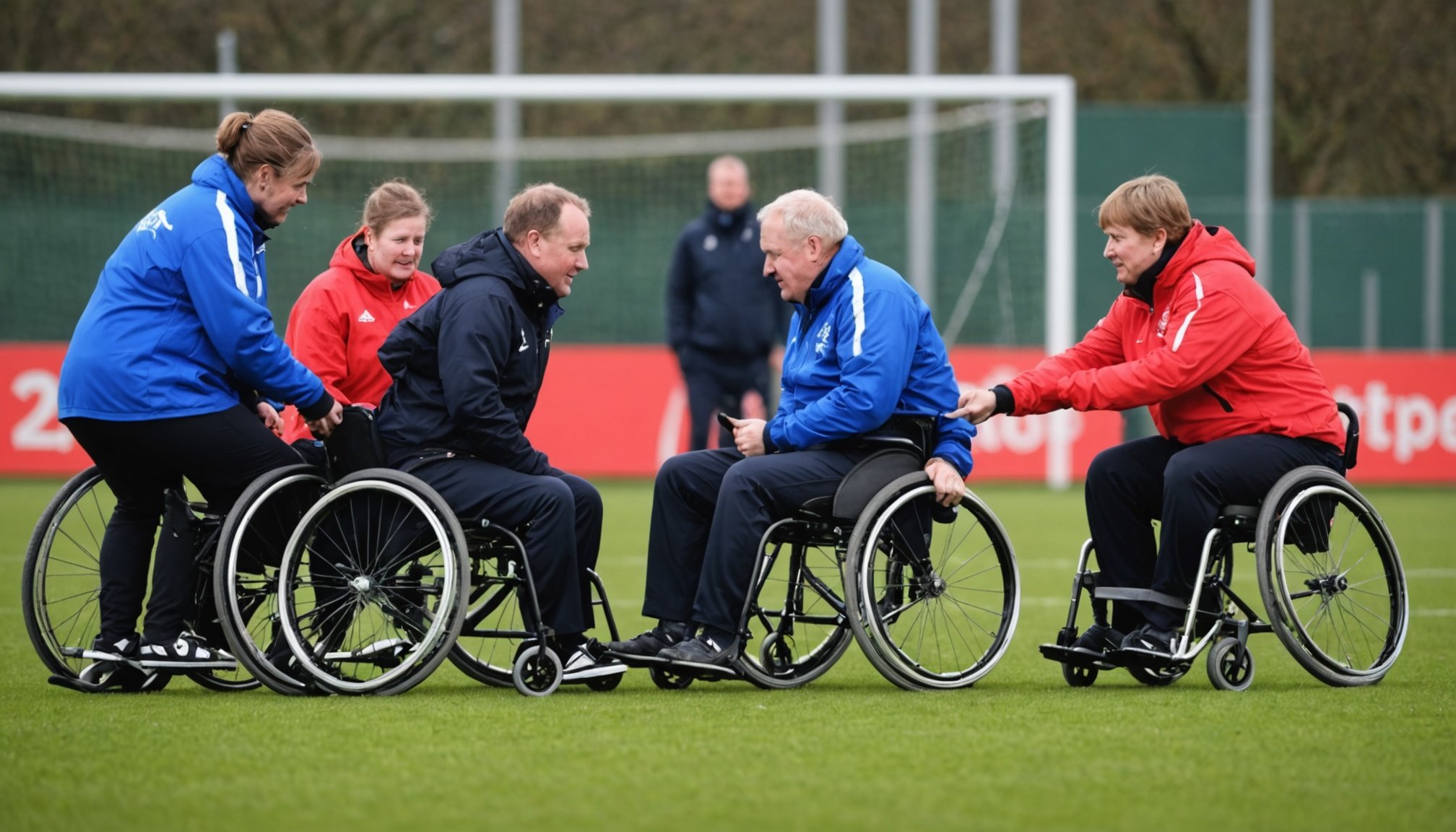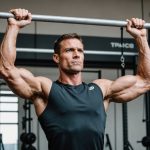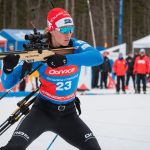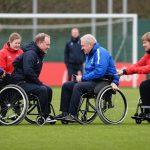Enhancing Accessibility: Strategies for UK Sports Clubs to Support Athletes with Disabilities to Inclusive Sports
Sports have the power to unite people, promote health, and foster a sense of community. However, for athletes with disabilities, accessing these benefits can be significantly more challenging. In the UK, sports clubs are increasingly recognizing the importance of creating an inclusive environment that caters to the needs of all individuals, regardless of their abilities. This article will delve into the strategies and initiatives that UK sports clubs can implement to support athletes with disabilities, ensuring that everyone has an equal opportunity to engage in physical activity and enjoy the numerous benefits of sport.
Understanding the Needs of Athletes with Disabilities
To create an inclusive sports environment, it is crucial to understand the diverse needs of athletes with disabilities. This includes physical, sensory, and mental health disabilities, each requiring specific accommodations and support.
Have you seen this : Essential Elements for Crafting a Winning Training Program for UK Triathletes
Physical Disabilities
Athletes with physical disabilities may need adaptations in the physical infrastructure of the sports club, such as:
- Accessible Facilities: Ensuring that entrances, changing rooms, and toilets are wheelchair accessible.
- Adaptive Equipment: Providing specialized equipment like wheelchairs designed for specific sports or prosthetic limbs.
- Trained Staff: Having coaches and staff trained in supporting athletes with physical disabilities.
Sensory Disabilities
For athletes with sensory disabilities, such as visual or hearing impairments, the following measures can be taken:
Also to discover : Elevating Performance: The Role of Mindfulness Techniques in UK Sports Teams
- Communication Aids: Using sign language interpreters or providing written instructions for visually impaired athletes.
- Tactile Markings: Implementing tactile markings on floors and surfaces to aid navigation for visually impaired individuals.
- Alert Systems: Installing alert systems that use vibrations or lights for athletes with hearing impairments.
Mental Health Disabilities
Mental health is a critical aspect of overall well-being, and sports clubs can play a significant role in supporting athletes with mental health disabilities:
- Mental Health Support: Offering access to mental health professionals and counseling services.
- Inclusive Coaching: Training coaches to recognize and support athletes with mental health issues.
- Stress Management Programs: Providing stress management and mindfulness programs to help athletes cope with mental health challenges.
Creating an Accessible and Inclusive Environment
Creating an accessible and inclusive environment is not just about physical adaptations but also about fostering a culture of inclusivity.
Physical Adaptations
Here are some key physical adaptations that sports clubs can make:
- Accessible Entrances and Pathways: Ensuring that all entrances and pathways are wide enough and free from obstacles for wheelchair users.
- Adaptive Sports Facilities: Modifying sports facilities to accommodate different types of disabilities. For example, installing swimming pools with lifts for athletes with mobility impairments.
- Sensory-Friendly Areas: Designating quiet or sensory-friendly areas for athletes who may be overwhelmed by loud noises or bright lights.
Inclusive Policies and Practices
Inclusive policies and practices are essential for creating a welcoming environment:
- Inclusive Membership Policies: Ensuring that membership policies are inclusive and do not discriminate against athletes with disabilities.
- Disability Awareness Training: Providing regular disability awareness training for staff and coaches to enhance their understanding and support.
- Feedback Mechanisms: Establishing feedback mechanisms to allow athletes with disabilities to provide input on how the club can better meet their needs.
Resources and Support for Inclusive Sports
Several resources and support systems are available to help UK sports clubs become more inclusive.
Activity Alliance
The Activity Alliance is a key organization in the UK that provides resources and support for disability sports. Here are some ways they can help:
- Guidance and Resources: Offering guidance documents, toolkits, and resources to help clubs become more inclusive.
- Training and Workshops: Providing training and workshops for coaches and staff on supporting athletes with disabilities.
- Networking Opportunities: Facilitating networking opportunities with other inclusive sports clubs and organizations.
Sport England
Sport England is another significant body that supports inclusive sports initiatives:
- Funding Opportunities: Offering funding for projects aimed at increasing participation in sport among people with disabilities.
- Strategic Partnerships: Collaborating with other organizations to develop strategic plans for inclusive sports development.
- Research and Data: Providing research and data on the participation rates and needs of athletes with disabilities.
Practical Strategies for Coaching People with Disabilities
Coaching people with disabilities requires a tailored approach that considers the individual’s specific needs and abilities.
Tailored Coaching Plans
Coaches should develop tailored coaching plans that take into account the athlete’s disability:
- Individualized Goals: Setting individualized goals that are realistic and achievable for the athlete.
- Adaptive Techniques: Using adaptive techniques and equipment to help the athlete perform at their best.
- Continuous Feedback: Providing continuous feedback and support to help the athlete improve and stay motivated.
Building a Supportive Team Environment
A supportive team environment is crucial for athletes with disabilities:
- Team Integration: Ensuring that athletes with disabilities are fully integrated into the team and feel part of the group.
- Peer Support: Encouraging peer support and camaraderie among team members.
- Celebrating Successes: Celebrating the successes and achievements of all athletes, regardless of their abilities.
Examples of Successful Inclusive Sports Initiatives
Several UK sports clubs and organizations have successfully implemented inclusive sports initiatives.
Case Study: The London Marathon Charitable Trust
The London Marathon Charitable Trust has been instrumental in promoting inclusive sports through various initiatives:
- Accessible Running Routes: Creating accessible running routes and facilities for athletes with disabilities.
- Inclusive Events: Organizing inclusive events that cater to athletes of all abilities.
- Community Engagement: Engaging with local communities to promote the importance of inclusive sports.
Case Study: The English Federation of Disability Sport
The English Federation of Disability Sport (EFDS), now known as the Activity Alliance, has been a driving force in disability sports:
- National Programs: Developing national programs aimed at increasing participation in sport among people with disabilities.
- Local Partnerships: Building partnerships with local sports clubs and organizations to promote inclusive sports.
- Advocacy: Advocating for the rights and needs of athletes with disabilities at a national level.
Overcoming Challenges and Ensuring Sustainability
Creating and sustaining an inclusive sports environment comes with its challenges, but there are ways to overcome them.
Funding Challenges
Securing funding is often a significant challenge for inclusive sports initiatives:
| Funding Source | Description | Benefits |
|---|---|---|
| Sport England | Provides funding for projects aimed at increasing participation in sport among people with disabilities. | Supports specific initiatives, offers strategic partnerships. |
| Local Authorities | Local councils and authorities can provide funding for community sports projects. | Supports local initiatives, fosters community engagement. |
| Private Donations | Private donations and sponsorships can be secured through fundraising events and campaigns. | Flexible funding, can be used for specific needs. |
Ensuring Sustainability
To ensure the sustainability of inclusive sports initiatives, clubs can:
- Build Strong Partnerships: Collaborate with other organizations and local authorities to secure long-term support.
- Develop Diverse Funding Streams: Rely on multiple funding sources to reduce dependency on a single source.
- Engage the Community: Involve the local community in fundraising and promotional activities to build a strong support base.: Creating a Level Playing Field
In conclusion, enhancing accessibility in UK sports clubs is not just a moral imperative but also a way to enrich the sporting experience for all athletes. By understanding the needs of athletes with disabilities, creating an accessible and inclusive environment, and leveraging available resources and support, sports clubs can ensure that everyone has an equal opportunity to participate and enjoy the benefits of sport.
As Mike Diaper, Executive Director of Children and Young People at Sport England, once said, “Inclusive sport is not just about providing opportunities for people with disabilities; it’s about creating a culture where everyone feels welcome and valued.” By adopting this mindset and implementing the strategies outlined here, UK sports clubs can truly create a level playing field where all athletes can thrive.
Additional Resources
For those looking to delve deeper into the topic, here are some additional resources:
- Activity Alliance Toolkit: A comprehensive toolkit provided by the Activity Alliance that offers guidance on creating an inclusive sports environment.
- Sport England Funding Opportunities: Details on funding opportunities available from Sport England for inclusive sports projects.
- Disability Sports Coach Training: Training programs for coaches on supporting athletes with disabilities, available through various organizations.
By reading and utilizing these resources, sports clubs can gain a deeper understanding of how to support athletes with disabilities and create a more inclusive and accessible sports environment.











